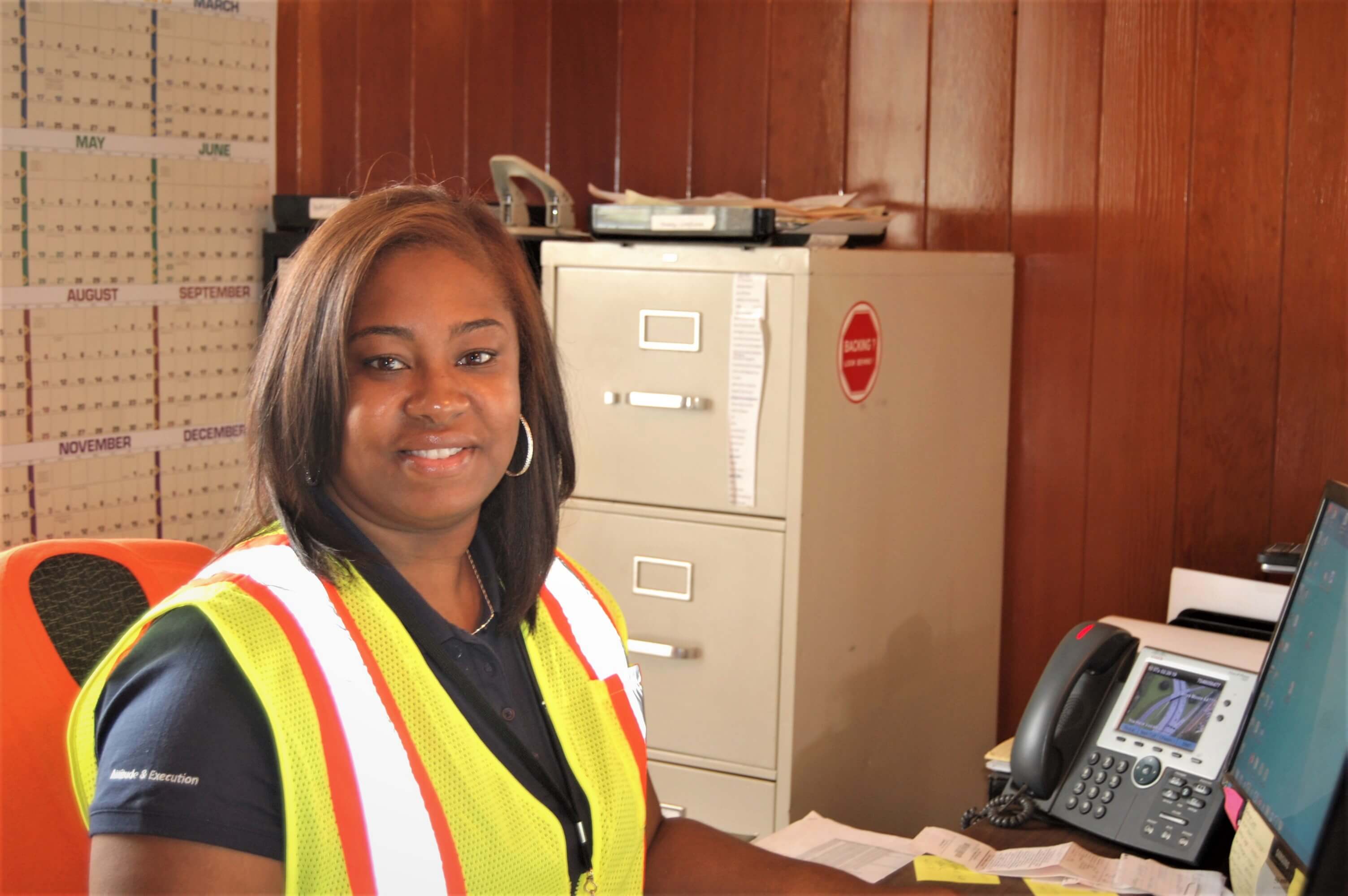by Garrett Simmons
Employee Name: Latoya Moore
Title: Project Coordinator
Years at Blythe: 1.5
After little more than a year working at Blythe, Latoya Moore has found a home in the construction industry. She fulfills an essential role as Project Coordinator at the company’s Winston-Salem field office, and with opportunities for advancement ahead of her, she’s looking forward to remaining in the industry for years to come.
It wasn’t long ago, however, that Latoya saw a much different future for herself. Having worked 12 years in the health care industry—starting at Novant Health, and later becoming lead administrative specialist at Thomasville Medical Center—she’d reached a point at which she more or less ruled out any major career changes.
“I never pictured a world without me working in health care,” she says. “I’d been in the industry so long, I couldn’t imagine ever changing.”
It wasn’t just the twelve years she had spent in health care that made leaving it seem impossible—Latoya had worked extremely hard to get there. She worked full-time at Novant while earning her bachelor’s degree in health care management. And in 2013, after she’d transferred to Thomasville Medical Center, she returned to college for a second degree in business administration. Again, she maintained her full-time job.
“I knew what I wanted to do, but I had to take my time with it,” she explains. “During that time, I became a mother, which affected my priorities. School was something that I wanted, working was something I needed to do. So, I kept at it.”
But in 2016, her plans were derailed by an event which forced her to put long-term goals aside and, for the first time since 2005, look for work outside of health care. Thomasville Medical Center underwent layoffs to its entire staff, including administration.
“The staff agency said it was a predominantly male industry. They didn’t tell me it was 100-percent male.”
“I could have taken another position at a lower rate,” Latoya says, “but they were phasing out, and I decided to take the severance and devote that year to finishing school. Once I graduated, I planned on returning to Novant.”
In the meantime, Latoya began finding temporary work through a staffing agency. Soon after, she received a call with an offer for a field clerk position. The company was Blythe Construction.
“I was aware that I would be entering a completely different work environment than I was used to,” she admits. “The staff agency said it was a predominantly male industry. They didn’t tell me it was 100-percent male.”
Putting aside her anxiety, Latoya went to interview at the Salem Creek field office, where she met Project Managers Matt Adams and Eric Becker. They would become her supervisors for the final stages of the Salem Creek project, and Adams would eventually become her mentor in the construction industry.
“I immediately liked them both,” she says. “I just got a great feeling from them. And once I started working for Matt, I realized that it would be very difficult to stop working for him.”
As luck would have it, the call Latoya had been waiting for from Novant came through within days after she started working at Blythe. The health care position she’d hoped for had come through. But by then, she says, it was too late.
“I had just started. They needed me, and my gut instinct just told me I couldn’t leave Matt hanging. That’s initially what got me hooked.”
“Everybody faces the same challenges. I didn’t have to develop any different character traits to succeed as a woman. I just had to get better at my job.”
Today, Latoya says, she is amazed by how much she has progressed in the relatively brief time she’s worked at Blythe. Parts of her job which presented the greatest challenge starting out have clicked solidly into place. “It was a struggle at first to just learn the language of construction. Now it’s like, ‘Wow, look where I came from, look where I am. Look what I’m able to do.’ ”
Asked about the possibilities for women like her in the construction industry, Latoya says the future is wide open for those who are willing to consider it. “It’s not that women are overlooked in the industry,” she says. “It’s that the available positions are being overlooked by women. But really, the possibilities are endless.”


